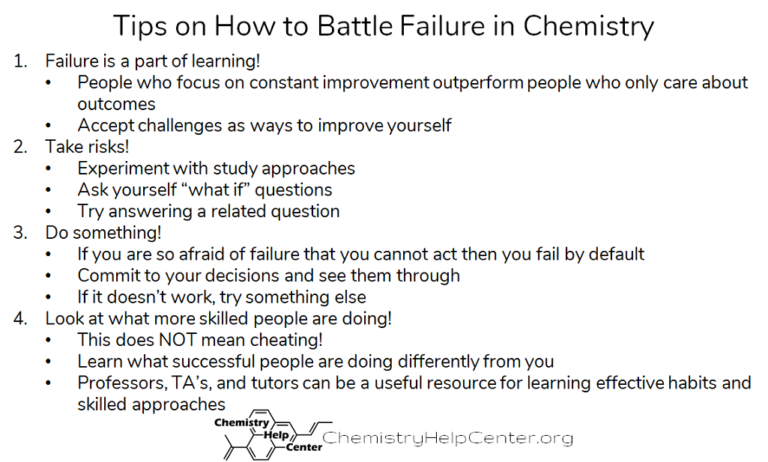Never Pull an All-Nighter
I’ve wanted to write a blog post examining why you should never pull an “all-nighter”—staying up all night cramming—for a while now. I kept putting it off because the list of reasons not to pull all nighters is relatively short: They don’t work, you are going to feel awful afterwards, and they can have lasting consequences on your health. These facts seem so obvious to me that I’m not even sure if it is worthwhile to bring them up. The problem is students are still doing all night cram sessions even though they probably know it’s a bad idea. In my experience, it isn’t just the lazy or bad students who do this either. As a tutor, I have seen many intelligent, hardworking students corner themselves into situations where they feel like their only option is to pull an all-nighter without realizing what they were doing until it was too late. Let’s look at a few of those experiences and try to develop some strategies for avoiding last-minute cram sessions.
Case 1: An Overbooked Student
The first student I want to talk about is an example of the kind of person I work with regularly. She is smart, capable, highly motivated, and has a life that is scheduled down to the minute. Every week she had practice for multiple sports teams, activities for student government, clubs, and numerous challenging classes. Although I loved working with her, finding time for meetings was always a challenge. I wasn’t too bothered at the start, we worked well together, and I was happy to help however I could. However, as time went on, she started to lose interest in chemistry. She did poorly on assignments even though I knew she understood the material. She would forget things we talked about between tutoring sessions. She started saying things like “I’m not good at chemistry” or “just tell me the answer” which, to a tutor, are warning signs of a student being left behind in their class. We had an extra-long session right before the final to go over all the material covered that semester, and even though she was starting to fall asleep by the end of it, she insisted on staying up and studying all the way until her test in the morning. In the end, she passed the class but ended up retaking it next semester anyway because she didn’t get the grade she wanted.
By the end of that first semester, she had convinced herself that she was terrible at chemistry and hated every minute she had to spend in any chemistry class (which turned out to be another year and a half). This situation could have been avoided if she had more realistic expectations about the level of commitment required to do well in a chemistry class. When you sign up for chemistry, you should be treating the class as a part-time job. Expect to be devoting up to 15-20 hours a week between time in class and outside studying. If you don’t think that you have that amount available to you, then it might be best to put the class off for a semester so that you can adjust your schedule to make time for studying. Chemistry is like learning to play an instrument: even if you have a great teacher if you aren’t practicing every day, then you probably aren’t going to improve that much. Most of what studying chemistry is practicing solving problems over and over. If you think that you understand the material in class but can’t solve the problem on the test, ask yourself if you are putting in enough time practicing that subject before you give up entirely.
Case 2: The Braggart
The next student I want to talk about didn’t just pull an all-nighter right before his last exam but tried to study like that every week! Like before, this person was likable and a good student, but he was also eager to prove what a good student he was. He would happily explain to you the reason why he was falling asleep in his chair was that he stayed up all night doing a project for a different class. Or tell you exactly how many cups of coffee he had to drink to make it through the day without passing out. I’m not sure if his friends were impressed when he told them about spending 16 hours in the campus library with a blanket and a four pack of Red Bull, but I wasn’t. Sometimes he would have to hold his eyelids up with his fingers to stay awake through the session (seriously!). I repeated myself continually because he would zone out and what I was saying. Even though he was good at chemistry, he would lose points on simple, unnecessary mistakes because of exhaustion and lack of attention. I talked to him frequently about the importance of having healthy study habits and getting enough sleep. While he agreed with me, he never changed his behavior enough to make a difference. This person had a gift for chemistry, but his eagerness to prove how hard he was working hurt him more than it helped him. If he had learned to take better care of his body, he could have easily been a top-tier chemist.
While it is essential to put in enough hours to develop your skill as a chemist, how you spend those hours is just as important as the time you put in. Obviously, If you are half asleep, and running on caffeine, then you are less able to retain the information. The less obvious problem is the limit on how many continuous hours you can study a single subject before developing mental fatigue. Chemistry is cognitively challenging, and you probably shouldn’t be studying more than one or two hours in a single sitting. Spread out the time you study through the week instead of trying to do one long burst. Make sure that you are well rested and have had enough to eat, take a short break every hour or so, and switch topics as soon as you start to feel fatigued. If you are spending more than 20 hours a week on chemistry, you are probably doing something wrong. Make sure you are actively engaging with the material and not just staring at an open book! Ask your instructor or tutor for pointers on how to optimize the study process.
Case 3: Self-Entitled
While organic chemistry has a reputation for being very difficult, I think that general chemistry is a more challenging class when you consider the difficulty of the material and the timing of the class. For many majors, gen chem is the gateway to higher level science, and for some students, the transition into scientific thinking and studying can be difficult. The last student I want to talk about was taking gen chem his first semester in college, and while he was doing fine in his other classes, he was falling behind in gen chem. His parents recognized this situation and hired a tutor to help him through the class. Unfortunately, he had some resentment around the idea that he would need a tutor. While working with him, he would often become frustrated and blame his teacher or his book any time he did not immediately grasp a concept. He would often talk about how he had a 4.0 in high school and did good in all his other classes, so he didn’t deserve the grade he was getting in chemistry. He was smart and got good grades, it was the teacher who didn’t know the subject. By midterms, his grade was approaching the point of no return. I worked with him before the exam, and he asked for a list of every possible question and what the answer was so that he could stay up all night and memorize everything. I never heard from him or his parents after that session, but I can only assume he stayed up all night memorizing facts and didn’t do well enough on his midterm to have a chance of passing.
I was reluctant to include this example when I was writing because I thought it might seem like I was complaining about a problem student and not offering enough insight on avoiding all-nighters. In the end, I decided to leave it in because there is a more significant point about how science classes work, and how to prepare for them. In high school, and many lower level classes, the lecture, assigned reading, and homework all cover very similar material. This allows a smart student to listen to the lecture once and be prepared for everything that comes up on that subject. In chemistry, this arrangement isn’t possible because you are expected to learn more material than can be thoroughly covered in class. Also, chemistry requires a level of abstract reasoning that prevents students from memorizing a set of universal answers that apply to all questions. Chemistry teachers can’t (and don’t want to) stand in front of the class and magically give students com
plete knowledge of chemistry. They want you to study and learn the material to the best of your ability on your own and come to class so they can help you organize information and fill in any gaps that you might have missed. If you expect chemistry teachers to hold your hand through every problem, then you are missing the point. This attitude will inevitably cause resentment as the pile of material that you are expected to figure out yourself grows through the semester. You should never be hearing “new” material in a chemistry lecture. Do some reading and look at the homework beforehand so that you have a good idea of what the teacher is going to be covering that day. As the teacher works through the lecture pay attention to the things you were struggling with on your own and listen for when the teacher points out common mistakes. If you still have questions you can ask small ones during the lecture or if you need an in-depth answer, ask after class.
Conclusion
All-nighters are bad for you. In my experience they almost never result in a good grade, they reduce your ability to focus, and they feel miserable. Yet, somehow, they have become ingrained into college culture. It’s expected that students are going to have to stay up all night studying once or twice during their college experience, and sometimes it’s even taken as a point of pride that you can buckle down and complete a bunch of work all at once. The truth is that with a little bit of planning and some reasonable expectations you can avoid cornering yourself into an all-nighter in almost every circumstance. After you graduate,planning skills and consistent effort are going to be valued a lot more than your ability to put in a bunch of hours at the last minute to put together a sloppy project. Stay focused, don’t bite off more than you can chew, plan out reasonable amounts of time to work every day, and take responsibility for your own learning. If you do these things, I can guarantee the results will always be better than whatever you can do in a single night of cramming.






